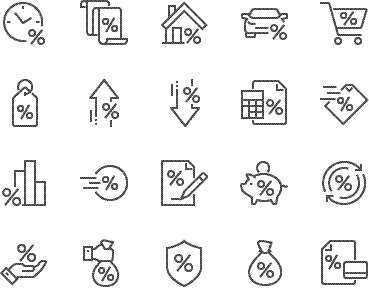
Does it make sense for me to invest in real estate right now?
2020 pulled out all of the stops, at least as far as surprises. Between the first pandemic in over a century and its effects on the housing market – such as lowered interest rates, an unprecedented demand for housing, and millions of Americans relocating. That begs the question; where does the rental market land between all of this?
To give you some background, whether it’s apartments or condominiums, a rental is owned by an investor most of the time. Whether it be high-level, like an apartment complex with its own respective leasing office, or a small duplex on the outskirts of a major city, investors are picking up these properties.
From those investors’ perspective, it’s been one of the most sound investments they could’ve made. Figuring things in like appreciation, cash flow, and tax write-offs, buying property was a considerably better place to put their money than a savings account. While stocks only pay you in one primary way, through appreciation and at times, dividends, they’re inferior to the several ways that real estate pays you. Not to mention, rent prices have grown steadily through history, allowing these investors mentioned above to become more profitable each year.
Figuring things in like appreciation, cash flow, and tax write-offs, buying property was a considerably better place to put your money than a savings account. While stocks only pay you in one main way, through appreciation and at times, dividends, it’s inferior to the several ways that real estate pays you.
Over the last year major cities like Manhattan, Los Angeles, and Boston have seen a significant decrease in renters, while cities in growing states saw quite the opposite. Those numbers were passed through to places like Miami, Tampa, and Raleigh. According to Multi-Housing News, the rental market has historically grown by about 3% over the last decade. That was, until 2020.
Multi-family rents have declined for a majority of this year by just over half a percent. Taking a closer look, you’ll see that, despite decreasing on a national level, there are still several places that are still seeing increases, both in population size and rent growth. States like Florida and North Carolina are seeing anywhere from 1-3%. This last year has highlighted the tremendous importance of investing in the right areas.
National averages don’t always dictate investment potential. Looking into each area, case-by-case will give you the best idea of whether or not it’s a good time to invest in real estate.
This last year has made a tremendous impact on the importance of investing in the right areas. National averages don’t always dictate investment potential. Looking into each area, case-by-case, is going to give you the best idea of whether or not it’s a good time to invest in real estate.
From a more analytical standpoint, there are additional reasons that investing in real estate now makes the most sense. For starters, let’s consider the opportunity cost. Many investors talk about waiting for “the next crash”, where they’ll triple their investment portfolio at a fraction of the cost. According to CNN, in 2008, the average home price across the nation dropped about 18% when the entire housing market crashed. It’s unlikely coming periods of slow economic growth would bring about such significant decreases in value. That being said, for this example, we can assume such will be accurate.
There are five different profit centers as it relates to real estate investing. The first of which, and arguably the most discussed, is cash on cash return. How much money are you going to get, as a return, in the form of cash? While it differs between markets, good cash on cash return to expect is about 7-10% of your initial investment. Meaning, if you buy a $100,000 home with a 10% down payment, you should expect about $700-1000 a year. While that may be the most romanticized aspect of real estate for investors, there are four more.
The second is principal pay down. For those of you that are taking advantage of low-interest rates, you can expect an additional source of profit through your tenants paying down your mortgage. A portion of the rental income that you’re receiving is being put towards your mortgage. Each year, your tenants are paying approximately 3% of the loan that you took out. So for that $100,000 we just used, you now own an additional $3,000 after your first year renting it out.

According to CNN, in 2008, when the entire housing market crashed, the average home price across the nation dropped about 18%. It’s unlikely coming periods of slow economic growth would bring about such significant decreases in value.
Thirdly, the next profit center you can consider as a real estate investor is leveraged appreciation. While it’s no guarantee, you can look at historical averages to get an idea of which rate you can expect your property to appreciate. According to Black Knight, even during the pandemic, while rates have been lower than average, we still see about 3.8%. Meaning, over the course of the first decade of owning your property, it’ll increase about $40,000. After averaging that out on your $100,000 investment, you’ll find that the property you purchased for $10,000 down has now increased roughly $4,000 after your first year of ownership. That’s nearly a 40% return on your initial investment. As the famous saying goes, “Rich people invest their own money, wealthy people invest other people’s money”, and this is no different. Even with a 10% down payment, you’re able to take advantage of the appreciation on your investment.
Next, we have tax benefits. While many different tax laws determine the amount of savings related to taxes, there are a few things we can take into consideration, like 1031 exchanges and tax write-offs. For someone in a typical tax bracket, you can expect to save 2-3% of the value of your home, in taxes, per year throughout ownership.
Last but not least, you have inflation hedging. Likely the least discussed of all real estate profit centers. Think about putting that $100,000 in the bank over the next 15 years. Each year, because of inflation and the inevitability of a higher circulating supply of the US dollar, the purchasing power of that money would decrease anywhere from 1 to 2%. When you take out the initial loan, you’ll be more equipped to pay it off, year after year, because of the weight of inflation. The lender would be taking on the loss, as that loan becomes worth less each year.
So that $10,000 that you put down on your $100,000 home, has now increased approximately $4,000 over it’s first year. After averaging that out, that means the property that you purchased for $10,000 down, has now increased approximately $4,000 after your first year of ownership. That’s nearly a 40% return on your investment.
These ideas may seem relatively simple but understanding these core concepts distinguishes between a novice investor and an expert. Creating a strong foundation with these ideas in mind will make a significant difference in your investing career. Given the theoretical number we just ran through, you’re getting a return on your investment that is considerably higher than 18% (the drop in value from the housing crash).
Excited about investing in real estate? Give us a call to discuss strategy, concepts, and more!

This was a good read! I didn’t know about “inflation hedging”.